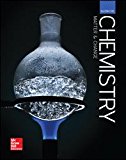
Concept explainers
How many electrons, protons, and neutrons arecontained in each atom?
a.
b.
(a)
Interpretation:
The number of electrons, protons and neutrons of Cs atom is to be calculated
Concept introduction:
The number of protons in an atom is mentioned as atomic number.
Where,
Answer to Problem 73A
Explanation of Solution
(b)
Interpretation:
The number of electrons, protons and neutrons of Co atom is to be calculated
Concept introduction:
The number of protons in an atom is mentioned as atomic number.
Where,
Answer to Problem 73A
Explanation of Solution
(c)
Interpretation:
The number of electrons, protons and neutrons of Tm atom is to be calculated
Concept introduction:
The number of protons in an atom is mentioned as atomic number.
Where,
Answer to Problem 73A
Explanation of Solution
(d)
Interpretation:
The number of electrons, protons and neutrons of Zn atom is to be calculated
Concept introduction:
The number of protons in an atom is mentioned as atomic number.
Where,
Answer to Problem 73A
Explanation of Solution
Chapter 4 Solutions
Glencoe Chemistry: Matter and Change, Student Edition
Additional Science Textbook Solutions
Essential Organic Chemistry (3rd Edition)
Organic Chemistry
CHEMISTRY-TEXT
Inorganic Chemistry
General, Organic, and Biological Chemistry (3rd Edition)
Introductory Chemistry (5th Edition) (Standalone Book)
 ChemistryChemistryISBN:9781305957404Author:Steven S. Zumdahl, Susan A. Zumdahl, Donald J. DeCostePublisher:Cengage Learning
ChemistryChemistryISBN:9781305957404Author:Steven S. Zumdahl, Susan A. Zumdahl, Donald J. DeCostePublisher:Cengage Learning ChemistryChemistryISBN:9781259911156Author:Raymond Chang Dr., Jason Overby ProfessorPublisher:McGraw-Hill Education
ChemistryChemistryISBN:9781259911156Author:Raymond Chang Dr., Jason Overby ProfessorPublisher:McGraw-Hill Education Principles of Instrumental AnalysisChemistryISBN:9781305577213Author:Douglas A. Skoog, F. James Holler, Stanley R. CrouchPublisher:Cengage Learning
Principles of Instrumental AnalysisChemistryISBN:9781305577213Author:Douglas A. Skoog, F. James Holler, Stanley R. CrouchPublisher:Cengage Learning Organic ChemistryChemistryISBN:9780078021558Author:Janice Gorzynski Smith Dr.Publisher:McGraw-Hill Education
Organic ChemistryChemistryISBN:9780078021558Author:Janice Gorzynski Smith Dr.Publisher:McGraw-Hill Education Chemistry: Principles and ReactionsChemistryISBN:9781305079373Author:William L. Masterton, Cecile N. HurleyPublisher:Cengage Learning
Chemistry: Principles and ReactionsChemistryISBN:9781305079373Author:William L. Masterton, Cecile N. HurleyPublisher:Cengage Learning Elementary Principles of Chemical Processes, Bind...ChemistryISBN:9781118431221Author:Richard M. Felder, Ronald W. Rousseau, Lisa G. BullardPublisher:WILEY
Elementary Principles of Chemical Processes, Bind...ChemistryISBN:9781118431221Author:Richard M. Felder, Ronald W. Rousseau, Lisa G. BullardPublisher:WILEY





